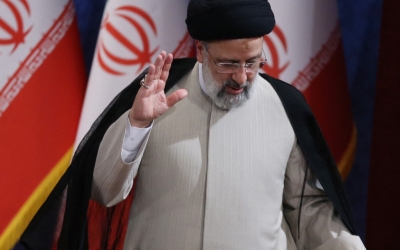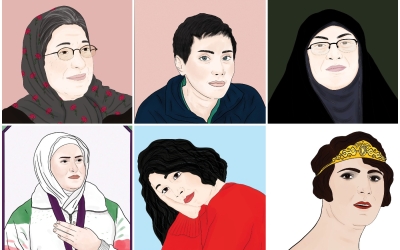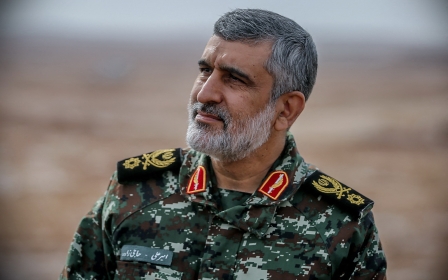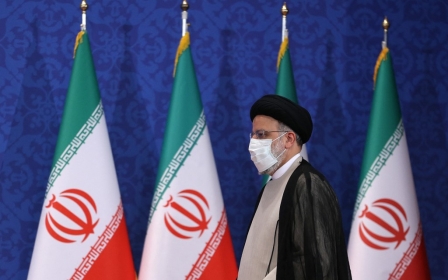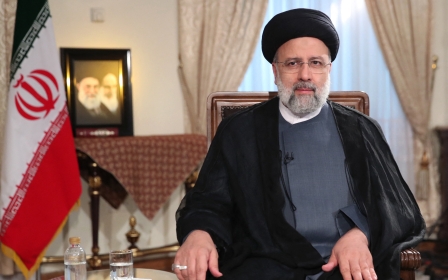Iranian women fear setbacks in hard-earned rights under Raisi
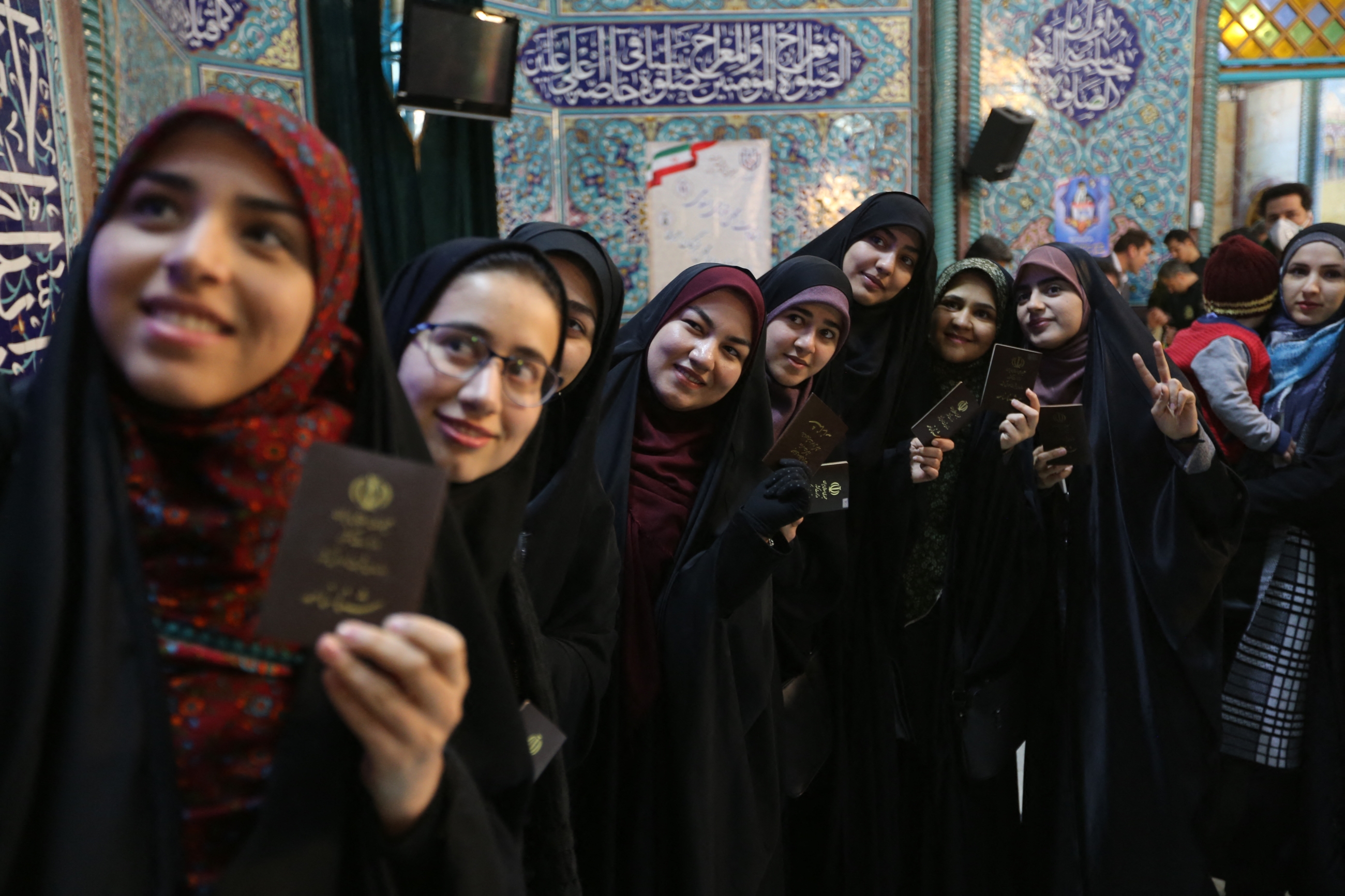
Ebrahim Raisi’s pick for Iran’s vice president for women and family affairs has raised eyebrows across the country, with many fearing the appointment of Ensiyeh Khazali is a harbinger of potential setbacks for women’s rights under the hardline president.
Khazali, the only female member of Raisi's cabinet and former dean of Iran’s first women-only public university, has previously made controversial remarks in support of early marriage of girls and her objection to Unesco’s 2030 sustainable development agenda.
Azam Haji Abbasi, the secretary-general of the conservative all-female Zeynab Society party, reacted to Khazali’s appointment on Twitter by describing it a "bitter joke regarding women’s rights".
Marziyeh Mohebbi, a lawyer and a women’s rights activist in Mashhad, told Middle East Eye that she does not expect Raisi’s government and his VP for women’s affairs “to have a plan for gender justice or increasing women's participation.”
Mohebbi added that appointing Khazali “can never indicate a determination to address the issue of women.”
Meanwhile, Iranian journalist Parisa Salehi recalled her first-hand experience as a student under Khazali’s management when she was the dean of al-Zahra University.
"Of course it only felt like a university inside the classrooms. Outside, it resembled nothing like a university, but rather a big Basij [militia] base, which only corresponded to ten percent of students there," Salehi wrote in a thread on her Twitter account.
While a great majority of reactions towards Raisi’s pick for his only female cabinet member have been negative, there have been some people who welcomed it.
In a short message sent to MEE, Minoo Aslani, the head of the women and family department at Iran's General Staff of the Armed Forces, welcomed Khazali's appointment and described her as “a capable person who adheres to the revolution’s principles and values with capacity to build public participation of women in different issues.”
Women’s rights under the Islamic Republic
Following the Islamic Revolution in 1979 and the change of the constitution, various restrictions were imposed on women under Islamic law, many of which are still in place four decades later, including mandatory hijab and a ban on female singers performing for male or mixed audiences.
This is while other laws such as unequal child custody rights, inability to seek divorce unless otherwise agreed upon at the time of marriage, and discriminatory inheritance laws, remain in place since the rule of Mohammad Reza Shah.
But discrimination against Iranian women also extends to other kinds of restrictions that are enforced by religious authorities for being “un-Islamic” or “against women’s values”. Running for president or riding a motorcycle are just two examples of the areas where women face discrimination despite there being no legal ban under the law.
For all these restrictions, however, the Islamic republic has encouraged education for women. For years, female students have outnumbered men at universities to the point that authorities have at times placed restrictions or quotas for admitting female students in some majors.
With a population of 84.5 million, according to figures published by the Statistics Centre of Iran, of which 49 percent are women, having a highly educated and skilled female population has resulted in a major transformation of women’s expectations in Iran, which has in many cases overturned the traditional roles of women in society.
The struggle of Iranian women fighting for their rights has been dangerous, as the state generally considers activism as a threat to national security and therefore there is no tolerance towards any major activities in this regard.
For instance, last December, lawyer Hoda Amid and sociologist Najmeh Vahedi were sentenced to a total of 15 years in jail on charges of "cooperating with the hostile government of America against the Islamic Republic” on issues related to women and families.
Slow, but continuous progress
While the struggle of Iranian women continued even in the early days of the revolution, it lost its tempo during the devastating war that late Iraqi president Saddam Hussein waged against Iran (1980-1988), and the following years of reconstruction.
However, social freedoms and women’s rights in Iran witnessed a degree of transformation during the presidency of reformist Seyed Mohammad Khatami (1997-2005), before being pushed a few steps back under his successor Mahmoud Ahmadinejad (2005-2013).
'We are worried that, like in the Ahmadinejad era, we will not only not make progress, but also have serious setbacks'
- Fatemeh Hasani, sociologist
Despite the setbacks, however, a historic achievement was made for Iranian women when Ahmadinejad appointed Marzieh Vahid-Dastjerdi as his health minister, against all the odds and objections by religious authorities, making her the first and only woman to have served as a minister under the Islamic Republic.
In 2013, the landslide victory of Hassan Rouhani, who had run a presidential campaign with a promise to bring equality for women, hope was renewed for rights activists.
While these changes were not as radical as some had expected, Rouhani made some progress in slowly expanding social freedoms and job opportunities for women. His administration became the first in the Islamic republic to appoint women to senior roles such as ambassador, foreign ministry spokesperson, governor, among others.
Additionally, Iran approved a decade-overdue bill in October 2019 granting women the right to pass their citizenship to their children born of marriages with foreigners.
Despite the progress that Iranian women have achieved over the past four decades, the country’s international ranking in gender equality is still among the lowest. According to the 2021 Global Gender Gap Report by the World Economic Forum, Iran ranked 150 out of 156, making it one of the countries with the largest economic gender gaps along with India, Pakistan, Syria, Yemen, Iraq, and Afghanistan.
Future of women’s rights
“Both Khazali and Raisi ascribe to ‘wives and mothers’ first and foremost, and will probably propose policies similar to what we saw during Ahmadinejad’s presidency, where mandatory hijab will be enforced more vigorously and women will be policed more intensely in public spaces,” said Sussan Tahmasebi, the director of FEMENA, an organisation working to promote women's rights in the Middle East and West Asia.
Fatemeh Hasani, a sociologist and women’s affairs activist in Tehran, echoed the same concerns.
“We are worried that, like in the Ahmadinejad era, we will not only not make progress, but also have serious setbacks,” Hasani told MEE.
“The ideological background of those in charge of the government is that the presence of women in the community is not important and is actually something against family consolidation.”
In regards to the prospect of women’s rights in coming years, Tahmasebi added that “women will be encouraged through incentives and disincentives to choose marriage and motherhood over careers and singlehood.”
However, she added, due to the country's severe economic woes, “these policies will be difficult to sell to women, and financially difficult for the government to implement.”
While the country’s unemployment rate among women stands at 27.8 percent, some 71 percent of all female graduates remain jobless. According to Hasani, women make nearly half of the country’s population and the government can’t easily ignore their demands and needs without significant consequences.
While seeking equality in the economy and the job market might be a major demand for many years to come, there are many others, especially among the younger generation, who aspire for more social freedoms in addition to the right to work.
“There are fundamental gaps between the real demands of women and what is being done by the socio-cultural policymakers,” said Hasani, adding that these gaps “could have major consequences for the society if they are not rightly addressed.”
This article is available in French on Middle East Eye French edition.
Middle East Eye propose une couverture et une analyse indépendantes et incomparables du Moyen-Orient, de l’Afrique du Nord et d’autres régions du monde. Pour en savoir plus sur la reprise de ce contenu et les frais qui s’appliquent, veuillez remplir ce formulaire [en anglais]. Pour en savoir plus sur MEE, cliquez ici [en anglais].


